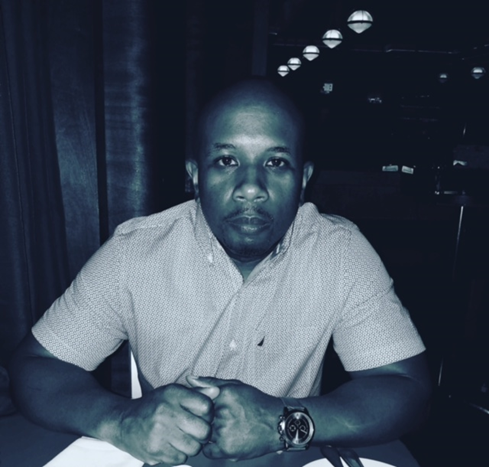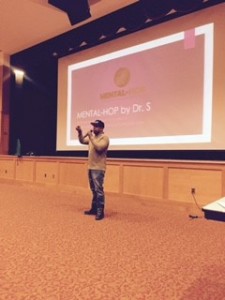Social worker uses hip hop to help his clients open up about mental health

Dr. Randolph Sconiers
Many social workers use the arts as a form of therapy.
For example, social worker Joe Hall went to film school. His Ghetto Film School in New York City allows children and teens to use filmmaking to express themselves.
Social worker Santo Marabella is a playwright and uses his plays to raise awareness of issues such as bullying and sexual orientation.
And New York social worker Dan Cohen, who is featured in the documentary “Alive Inside,” uses nostalgic music to engage and treat older adults living with Alzheimer’s and other forms of dementia.
Joining these pioneering social workers is Dr. Randy Sconiers.
From his private practice in South Plainfield, N.J., he has discovered that using Hip hop music helps young adults and teens suffering from mental health issues to heal.
Visit Sconier’s Mental-Hop website to learn more about his project.
“One of the things I wanted to do was use hip hop as a way to decrease the stigma associated with mental health and mental health services,” he explained. “Music helps spark conversations about depression, anxiety, or some of the things they are experiencing.”

Sconiers making a presentation on Mental-Hop.
Although Mental-Hop, the name of his new initiative, is in its infancy Sconiers has found great success in using Hip hop to reach some of his most challenging patients. “That’s why I created the symposiums where we have this intense dialogue about mental health through Hip hop,” he said.
Sconiers encourages his clients to look at artists and lyrics and discuss in an open and nonjudgmental way “about what people experience and we bridge the gap and use Hip hop as a way to talk about it.”
For example, Sconiers said you can read the lyrics for Kendrick Lamar songs “Humble” and “Loyalty” and analyze them and bring them into a conversation.
“What does it mean to be humble? Is it good? Or have you practiced being humble. Or is it a bad thing? Just give them the opportunity to discuss it in a very open and focused way,” Sconiers said.
Sconiers, who is planning to hold more symposiums in 2018, has found that using Hip hop as a tool for engagement has served as a springboard for the real work of engaging clients.
He says the music has helped the people he works with express their feelings and discuss how to cope with issues they’re struggling with.
“If we can get Hip hop to buy into mental health than we can get our young people to buy into it,” Sconiers said.
Social workers help people over life’s challenges, including mental illness. To learn more visit the National Association of Social Workers’ Help Starts Here website.
| Leave A CommentAdvertisement
4 Comments
Leave a Comment
You must be logged in to post a comment.



Hello Dr. Sconiers:
Nice to see you here on the NASW Social Workers Speak website!! I first became familiar with you and your work on Linkedin. This is a great vehicle and platform for the vital work that you do. Congrats!! Keep On !!!
Silas W. Kelly, LMSW
“E-Journalism Social Work Advocate”
Thanks for sharing this. I’ve been doing this for years. One of my favorite songs to use to teach about domestic violence and self esteem to young girls back in the day, was “Eve: Love is Blind.” I say to you, keep up the good work. Most of our young people use music and media to speak. So it’s vastly important that we speak their language. Nice work!
Love it! I too had great success using hip hop with clients when I was a full-time counselor!
I absolutely LOVE THIS! Using music, culture and art to inspire the masses. It’s what it was intended to do. Lyrics are powerful, music is powerful. Kudos to you Dr. Sconiers! Reading this has not only inspired me, but it’s let me know that I’m on the right path.